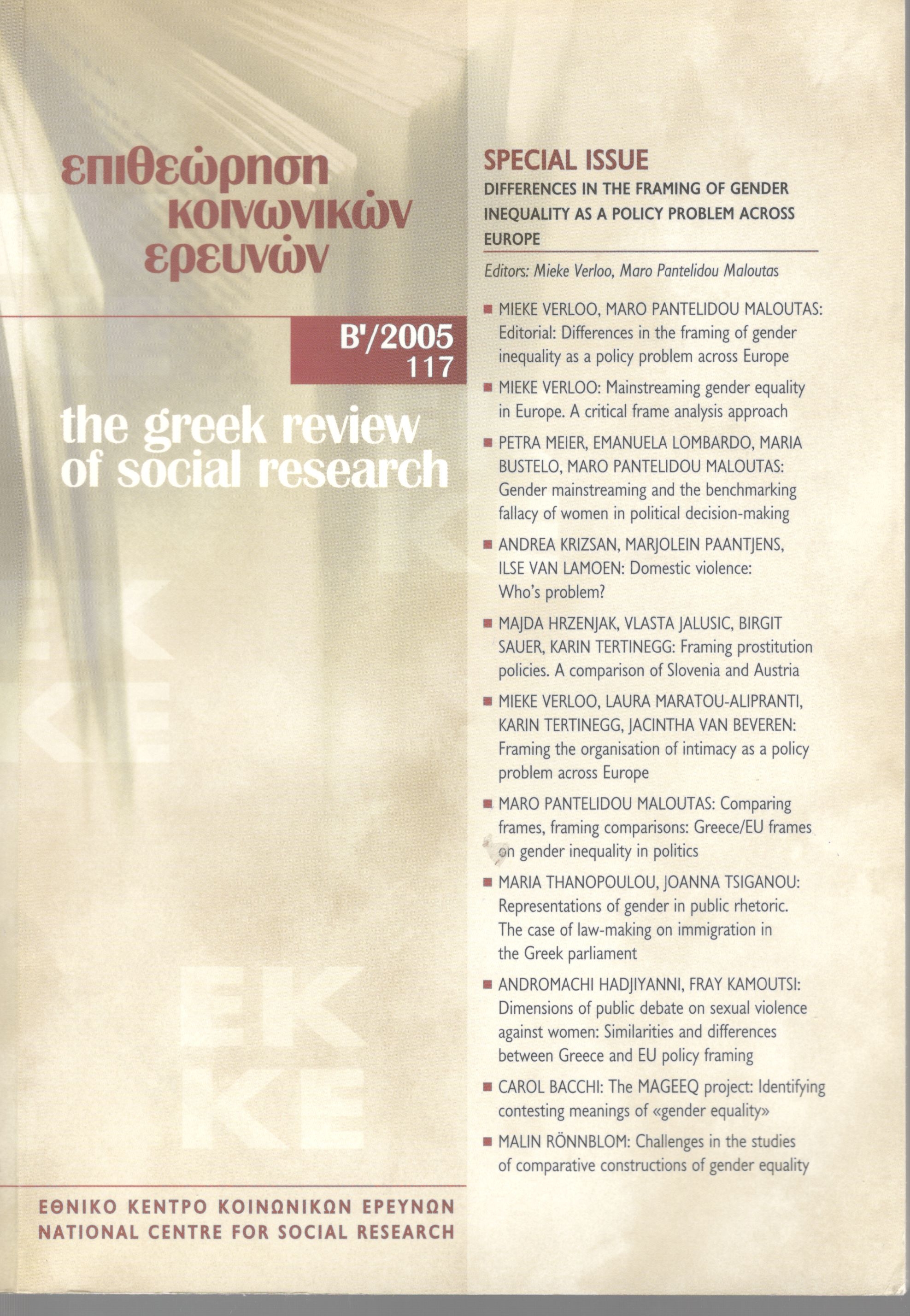Gender mainstreaming and the benchmarking fallacy of women in political decision-making
Abstract
In this article the authors analyse the extent to which an explicitly gendered issue such as the position of wo/men in political decision-making has been approached from a gender mainstreaming perspective. They do so by exploring how the issue has been framed in three countries, the Netherlands, Spain, and Greece, and in the European Union. The analysis enables them both to provide a state of the art of how gender in political decision-making has been dealt with throughout the last decade in the selected case-studies and to offer insights on the potential for a gender mainstreaming approach of topics in which sex-related inequality is explicit. The main argument is that such policy issues contain a benchmarking fallacy. The easiness with which they can be quantified opens the door for an analysis and solution of problems of gender inequality in terms of numbers, without tackling underlying structural problems.
Article Details
- How to Cite
-
Meier, P., Lombardo, E., Bustelo, M., & Maloutas, M. P. (2016). Gender mainstreaming and the benchmarking fallacy of women in political decision-making. The Greek Review of Social Research, 117, 35–61. https://doi.org/10.12681/grsr.9556
- Section
- Articles

This work is licensed under a Creative Commons Attribution-NonCommercial 4.0 International License.
Authors who publish with this journal agree to the following terms:
- Authors retain copyright and grant the journal right of first publication with the work simultaneously licensed under a Creative Commons Attribution Non-Commercial License that allows others to share the work with an acknowledgement of the work's authorship and initial publication in this journal.
- Authors are able to enter into separate, additional contractual arrangements for the non-exclusive distribution of the journal's published version of the work (e.g. post it to an institutional repository or publish it in a book), with an acknowledgement of its initial publication in this journal.
- Authors are permitted and encouraged to post their work online (preferably in institutional repositories or on their website) prior to and during the submission process, as it can lead to productive exchanges, as well as earlier and greater citation of published work (See The Effect of Open Access).



